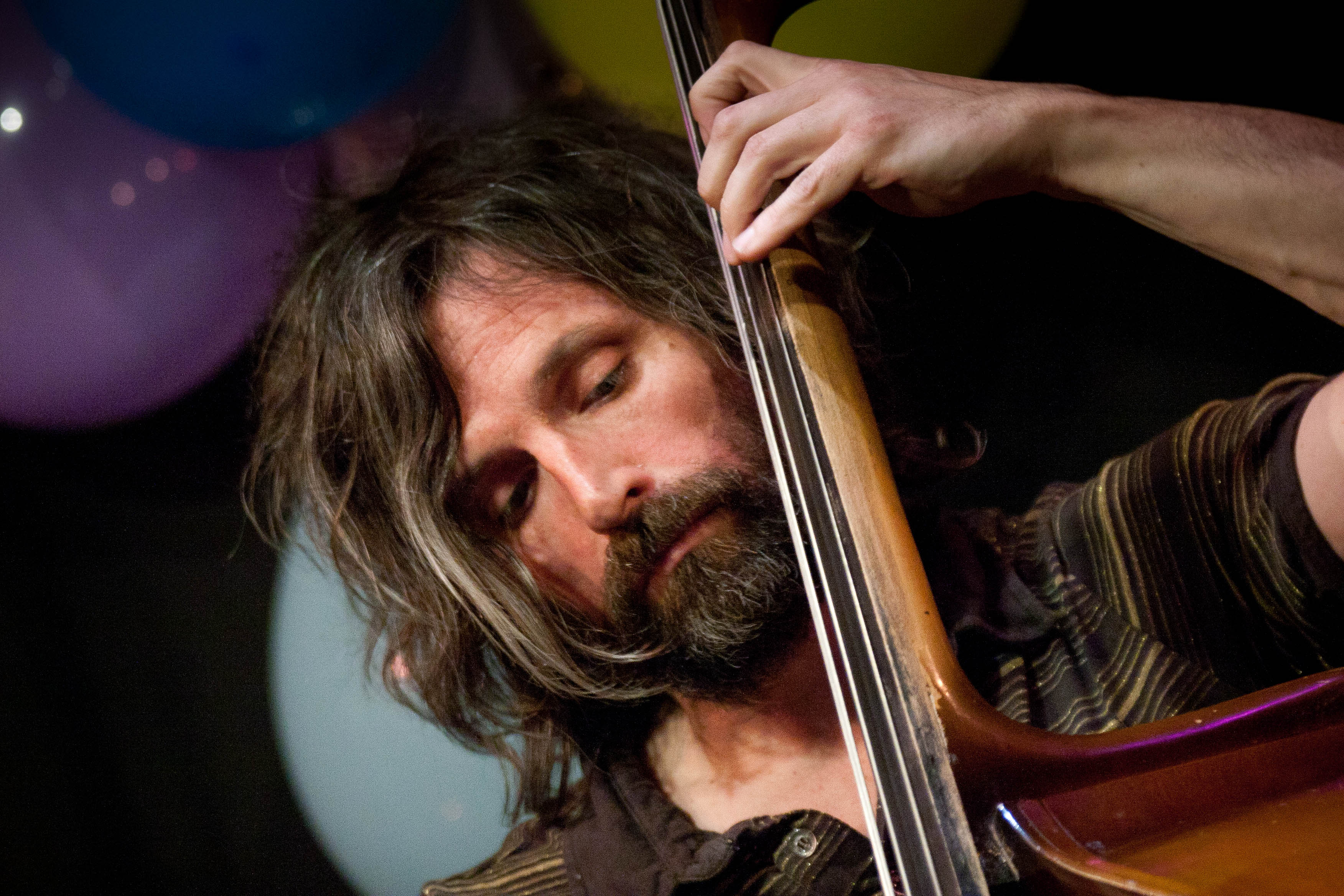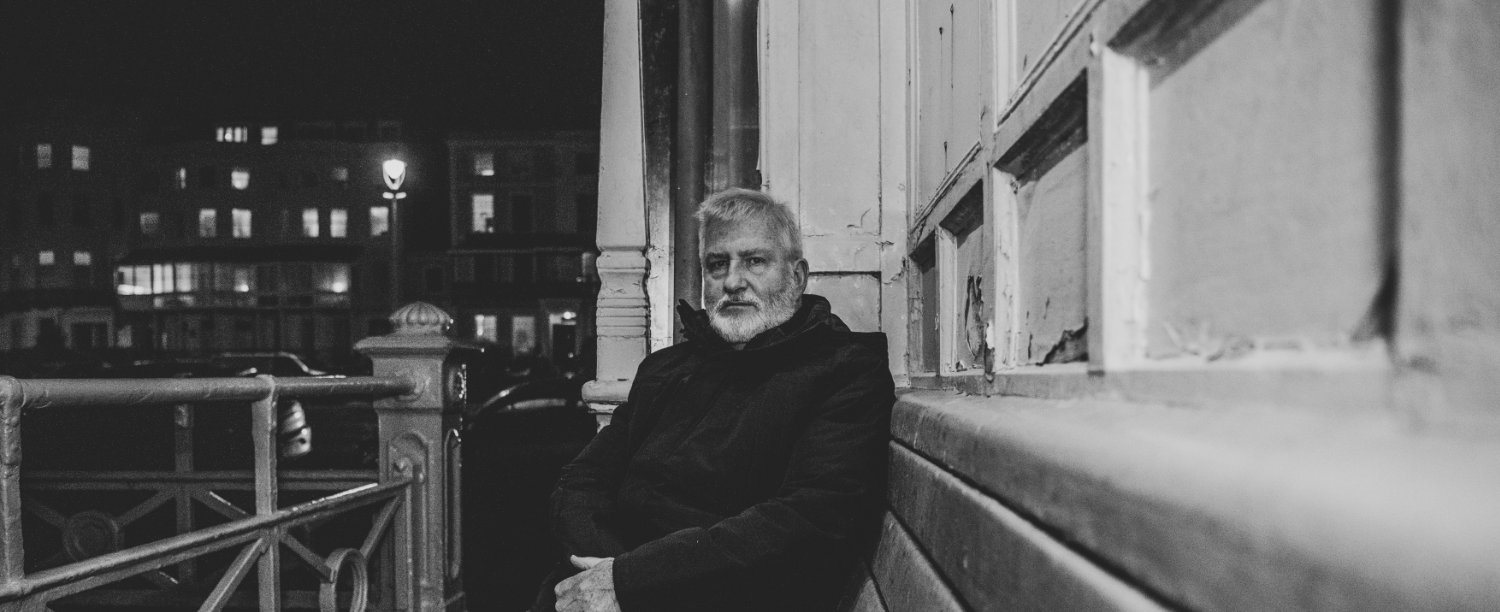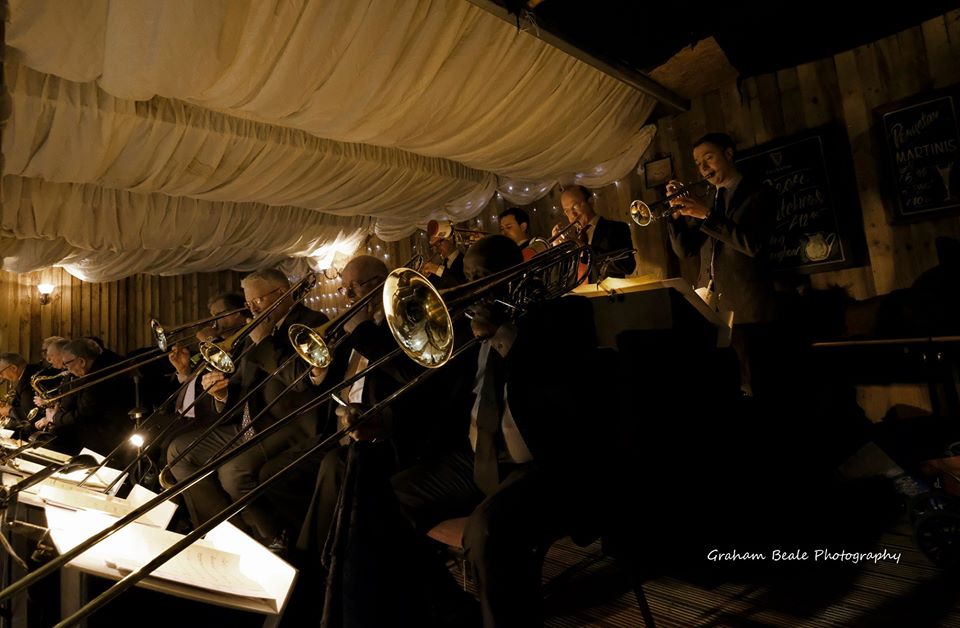The Column: Eddie Myer – It’s My Party and I’ll Play Dominant Subs If I Want To

Party conference season is upon us once again, and the barriers have not yet been removed from outside the Brighton Centre, where they’ve been on duty all week protecting the Labour Party as they set out their stall before the public. Local musicians who’ve been on duty entertaining the public in their regular spots around the town centre will have benefitted as their audiences were swelled by the party delegates, easily recognisable by their red lanyards and air of new-found, unaccustomed confidence over a barely suppressed excitement, like previously unpopular teenagers who suddenly find themselves with the most Prom invites in their class and are starting to comprehend the magnitude of their potential rewards. Jazz musicians in the UK have long been drawn towards the political Left, and evidence that this affiliation continues could be found at The Walrus on Ship Street, where two nights of music were staged as a benefit for the Brighton and Hove Labour Party, organised by the tireless Terry Seabrook, Julian Nicholas and Jon Newey, and headlined by two of Sussex’s brightest musical stars, Claire Martin OBE and Liane Carroll. Both nights were well attended and supported by many of the local musical community – they also introduced many to the potential of The Walrus’ spacious and well equipped downstairs bar, ideal for staging further events.
Of course, not all jazz fans are also Labour supporters, and the title ‘Jazz For Labour’ was the subject of some acerbic online repartee between supporters and those whose enthusiasm for jazz was not matched by a corresponding devotion to progressive politics. This column has already expended some energy in examining the long and complex relationship between jazz and politics; and in reconciling the two opposed yet coexisting truths that while artistic endeavour cannot be owned by any one set of political beliefs, yet art cannot exist in a vacuum and will always reflect the stresses and dialectical oppositions of the society in which it is generated. Jazz musicians in the UK tend to be liberal and progressive and sections of their audience tend towards the conservative, whether you spell it with a small or a large ‘C’ , and this tension generates it’s own kinetic energy which occasionally emerges in bursts of colourful recriminations, especially where funding is concerned.
Many jazz musicians will be de facto Labour supporters because of their Musician’s Union membership, as the Union is an affiliated organisation and pays a fee to the party in return for all its members receiving the right to vote in Labour ballots and, musicians being what they are, those who don’t actually embrace this eminently covetable privilege are likely to retain it through sheer inactivity. But if we are to take policy at face value, there’s no doubt that the current Labour Party pledges directly address many of the issues affecting the UK’s musical community to a far greater extent than those of any other party. Promises of a £1 billion Capital Development Fund and an Art Pupil Premium to make instrument classes available to all primary school pupils are included in the party manifesto as part of their pledge to end austerity, and one may of course question the affordability. Yet another less trumpeted, less costly but equally noteworthy proposition is a reform of licensing and development regulations to favour small venues in recognition of the essential role they play in fostering talent.
The pledges in question draw up plans for protecting and investing in music venues, to support grassroots and professional music, and ensuring a healthy music industry across the country, and for creating a review of the business rates system to make it fairer to organisations like music venues, extending the £1,000 pub relief to help small music venues that are suffering from rates rises. The MU has welcomed these proposals; we have examined the plight of small venues in this column, and can only agree. In the interests of balance, let’s introduce a voice from another perspective, that of the exciting, dynamic world of online capitalism.The ticket sales website, WeGotTickets, has rapidly become a go-to resource for independent promoters, including our very own New Generation Jazz, due to its reach, transparency and ease of use. Their own blog’s latest update addresses the issues confronting small jazz venues, and we make no apology for quoting extensively from it, not least because of the prominent mention it gives to The Verdict:
“Despite the genre’s niche appeal, around the UK a number of excellent small clubs ensure jazz’s grassroots scene is well catered for. In London, the Vortex Jazz Club is something of a flag bearer, hosting a broad range of jazz – from standards through be-bop and hard-bop to spiritual jazz and the more avant-garde – in its intimate 100-capacity room. Other great clubs around the country include Fleece Jazz in Bristol, The Verdict in Brighton, Oxford’s Spin Jazz, Jazz at the Cavern in Farncombe, Wakefield Jazz, and Jazz at The Crypt and Spice Jazz, both in London. Festivals such as the EFG London Jazz Festival and Cambridge Jazz Festival are also keen to support up-and-coming artists, often programming events into smaller clubs alongside their larger shows.
These clubs don’t have it easy though. Speaking to us after being voted onto our INDIE50 – a list of individuals doing amazing work behind the scenes in independent music – the Vortex’s general manager Kathianne Hingwan spoke of the tough times they’re experiencing. “It’s a bit of a hand-to-mouth organisation” she explained, “and that’s because there isn’t really that much money in jazz. Ronnie Scott said that if you want to make a million in jazz, you need to start with two – it was meant to be a joke but it’s actually true”.
Although the challenges facing the grassroots scene are numerous – jazz clubs obviously suffer the same well-documented stresses and strains that are affecting all small venues – it’s imperative that these independent clubs are successful. Their importance to the whole jazz industry can’t be overstated. “The guys from Ronnie Scott’s come over here, and when we thought we might disappear about 18 months ago they were very worried”, remembers Kathianne, “They said that we couldn’t disappear because it’s very important what we do, because we give a lot of the young musicians their start”.”
It’s always a pleasure to report good news. We’ve dedicated previous editions to documenting what we see as a genuine shift towards jazz-and-related-music among mainstream, younger audiences, and WeGotTickets’ own data actually backs this up, citing the following stats:
“Our sales figures at WeGotTickets give reason to be optimistic. Working mainly with small clubs and festivals, we’ve seen almost a 40% increase in jazz ticket sales over the last two years. We have over 20% more jazz events on sale in September 2017 than we did in the same month in 2015, with more than half of that growth coming this year, and all signs point to a continued increase as small clubs are able to expand from one or two nights per week to a fuller events calendar.”
As sad tidings reach us of the threat to the continuing existence of the Swanage Jazz Festival, it’s good to hear of tales of growth in the sector we all love, regardless of political affiliation. Let’s hope that the political establishment will acknowledge and support this growth as we head forward into the uncharted waters of Brexit and beyond. And let’s not forget how the seismic shifts in the way that recorded music is consumed have seriously affected the jazz community; Big Streaming, as represented by Spotify and Apple Music, does not serve jazz particularly well, as we have noted before. The recent decision by TfL to halt the Uber juggernaut and the willingness of Berlin and Barcelona to curb the spread of AirBnB until both companies can accept their burden of social responsibility, and the steps taken by the EU to restrict the monopolistic hegemony of Apple and Google all provide an example of how disruptive tech doesn’t always have to get it’s own way. Surely all but the most dogmatically libertarian can support a measure of enlightened intervention in favour of the music we all love, regardless of what colour rosette we may be moved to adopt come convention time.
Eddie Myer
Join Nigel Price and help save Swanage Jazz Festival via the Kickstarter page.


